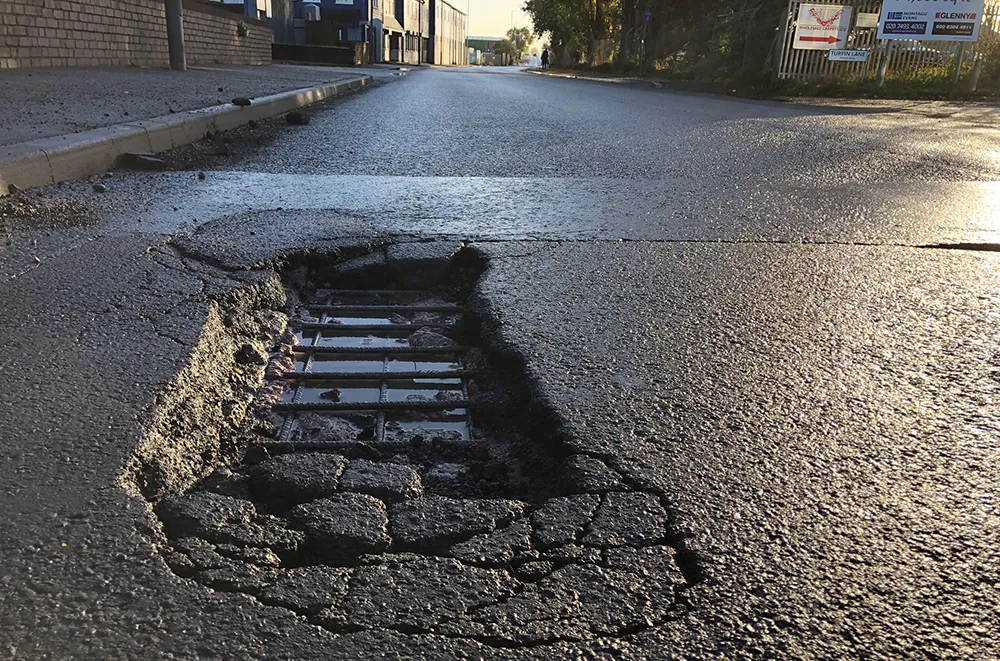
Local road repair spending in the UK has been slashed more than in nearly all OECD countries, according to the Local Government Association.
The association, which represents councils across England and Wales, has analysed figures from the OECD – Organisation for Economic Cooperation and Development - a group of 38 ‘high income countries’. The information shows that nearly US$5.1 billion was spent in 2006 on UK local road maintenance compared with $2.54 billion in 2019 - the last year of comparable data available, according to the LGA.
This is compared to Sweden, Denmark, the US, Japan and New Zealand which have increased spending by around half over the same period. Countries including France, Finland and Canada have also protected pothole repair budgets more than the UK Government has.
Only Italy and Ireland have seen such similar drops in spending on local roads.
The LGA said it wants to work with the UK government on a devolved, long-term plan for local road maintenance. Included should be greater and more consistent funding to get investment in roads back up to the levels of other leading countries.
The association said the central government spends 31 times more per mile - 1.6km - on maintaining motorways than local roads. LGA is calling on all political parties to pledge to a 10-year programme that would support road repairs through a fuel duty.
This needs be accompanied by fully devolved powers to councils over all local transport, with five-year funding settlements such as is done for national bodies such as Network Rail and National Highways – the agency that maintains the major road network in England. This would also allow investment in more sustainable and lower carbon forms of local transport as the government works towards net zero.
The LGA’s analysis is “no surprise”, said Rick Green, chairman of the UK’s Asphalt Industry Alliance. “The picture of managed decline reflects the findings of our Annual Local Authority Road Maintenance (ALARM) survey,” he said.
“The link between continued under-investment and the ongoing structural decline and below-par surface conditions of our local roads is clear. ALARM 2023 reported that it would now take £14.02 billion [$17.8 billion], the highest recorded in 28 years of ALARM surveys, to tackle the backlog of repairs and bring them up to a condition from which they could be effectively managed going forward.”
Green said he believes that more local highway budget ringfencing is needed to ensure that funds are directed to the type of works that deliver the best value for money and improving the resilience of the local road network.







